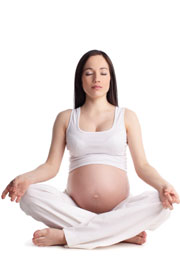Speaking of sheltered people, my mind keeps returning to the character of Anne Stanton in Robert Penn Warren’s All the King’s Men. (Spoilers ahead, for anyone who hasn’t read it!) I had never really understood why Anne got involved with Willie Stark toward the end of the book. She tells Jack that after she fell in love with Stark, she found out about the ignoble crime her father was involved in, and “[t]here wasn’t any reason why not then.” (p. 489) This used to seem ridiculous to me–just because her father wasn’t the perfect man she had imagined, she felt like she had the right to do anything?
I think I understand it better now. Anne had set up a world of black and white for herself–her father, and Judge Irwin, stood for justice, and Willie Stark stood for corruption. Her picture of the world was so absolute and unbending that when those distinctions got a little muddied–when she discovered Stark’s good side, and her father’s imperfect past–her entire moral world collapsed. Or actually, it fell apart because it wasn’t about morality in the first place–it was built around something more artificial. She hadn’t really resisted friendship with Stark because it was wrong, but because if she’d broken any of her rules she would have been completely banished from the supposed perfection of her family. She didn’t have a category in her mind for a basically good person who fails sometimes; so with her father’s fall from grace, all her careful distinctions fell apart. Although Willie was still a corrupt man–and a married man!–when she finds out that perfection doesn’t exist, there’s no reason left to keep her from succumbing to her attraction for him.
Something similar happens to her brother Adam–but for him the paragon of virtue is not only his father, but his sister. He can’t handle her affair with Willie because his world is also black and white. There is no category in his mind for a good woman who commits a sexual mistake; instead he is convinced that she has been completely corrupted into a “whore.” And when he finds out that his father committed a single dishonesty, there’s no category in his mind for that, either; instead, his father has become an irretrievably evil man: “[d]amn his soul to Hell.” (p. 381) Now that I revisit the first scene, where he confronts Anne about her affair, I notice that he’s maybe even more disturbed with what’s happened to his reputation and righteousness: “he said if everything else was filthy a man didn’t have to be….he wouldn’t be pimp to his sister’s whore and nobody would ever say that about him.” (p.588) I still think Adam’s a sympathetic character but this casts a bit of a disturbing light on him. He’s a good man, but he can’t untangle his morality from his pride.
Willie Stark’s view of the world makes an interesting contrast to Adam and Anne’s, because it’s not simply a flat opposite. Willie is seeking justice too–in addition to glory and power–but he’s starting from the somewhat more realistic idea that everything is corrupted:
Man is conceived in sin and born in corruption and he passeth from the stink of the didie to the stench of the shroud. There is always something. (p. 286)
He’s right, in a way–nothing is untouched by original sin. But he fails to see the goodness that survived the Fall. Where Adam and Anne think the original goodness remained pure in their family, Willie thinks it was never there from the beginning; you have to “make it up as you go along.”
….plain, simple goodness. Well you can’t inherit that from anybody. You got to make it, Doc. If you want it. And you got to make it out of badness. Badness. And you know why, Doc?…Because there isn’t anything else to make it out of. (p. 386)
Once again, this is not entirely wrong. Anyone who’s ever studied politics (or history, like Jack Burden) knows that you can’t get anything good done if you’re not willing to get your hands dirty.
The law is always too short and too tight for growing humankind….You can’t make bricks without straw, and most of the time all the straw you got is secondhand straw from the cowpen. (p. 205)
No one can deny that Willie made a lot of good out of badness. Even Anne can see that the free hospital he’s planning is going to be wonderful. But could he have done it without falling into corruption? I’m not sure if the book answers that question. Warren doesn’t condone Willie Stark’s actions, but he doesn’t have much praise for the opposite extreme, either.
I can see now why the blurbs always say that this is a book about politics. But oh, it’s so much more than that! This post was awfully hard to write, because every time I dipped into the book for a quote, I started reading again and couldn’t stop. Gosh what a book. Tune in for some more thoughts on All the King’s Men soon!

